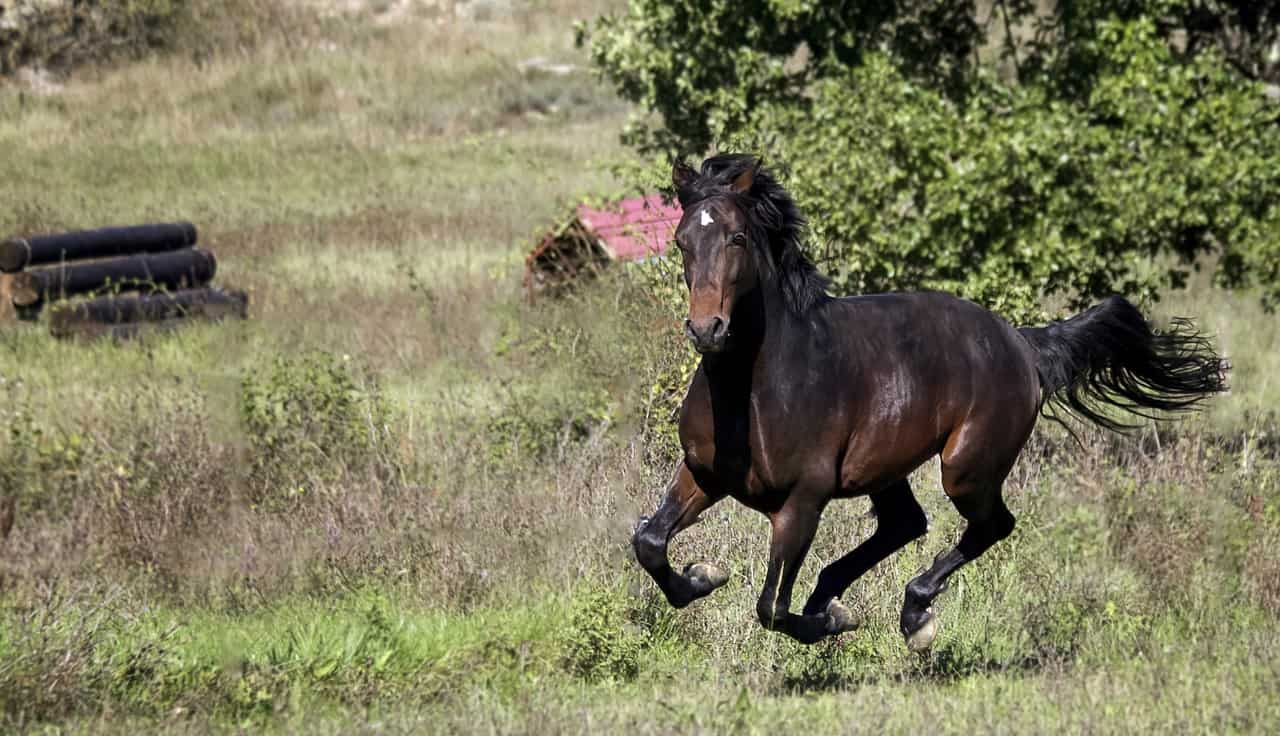
Stomach ulcers
More and more horses and ponies have stomach problems and even stomach ulcers. We are also seeing more and more recurrent stomach problems. A very important role in the prevention and treatment of gastric ulcers is overall (nutritional) management.
A horse’s stomach has a different function than in most animals. The stomach contents are relatively small because the stomach serves as a kind of conduit to the intestines and not as storage for food (as, for example, in cows or predators that eat a large prey in 1x).
In nature, a horse eats throughout the day, so there is almost constant activity in the stomach.
Many horses today are given larger amounts of (concentrate) feed a few times a day and nothing in between. As a result, the natural function of the stomach gets upset, the stomach lining decreases and the stomach acid starts to irritate the stomach wall resulting in stomach ulcers. This is because a horse’s stomach produces stomach acid 24 hours a day, unlike humans, for example, where stomach acid only comes on during eating.
Saliva and food act as a buffer against stomach acid. Saliva production is stimulated when the horse chews, especially when ingesting roughage.
In a peptic ulcer, the stomach lining is decreased and damaged causing a wound, we call it the peptic ulcer. The heartburn often makes this wound worse, creating a vicious cycle.
Ample, preferably unlimited, good quality roughage is therefore incredibly important. Larger amounts of concentrate that the stomach has to process are just not desirable. Also make sure during long rides, transport and competitions that the horse can continue to eat adequately.
During an intense workout, stomach acid is likely to be pushed up into the stomach. The upper part of the stomach has little to no protection of glands and gastric mucosa so wounds from stomach acid develop even more easily here.
Stress also plays a very large role in the development of stomach ulcers. With stress, the blood supply to the stomach is reduced, making the stomach wall less nourished and more sensitive to stomach acid. Lack of social contact, injuries, (prolonged) transportation, competitions, being stabled too long, illnesses and pain elsewhere in the body can all be sources of stress. Prolonged or high doses of painkillers or anti-inflammatories, for example, can also trigger an ulcer.
Imaging an ulcer can only be done through endoscopy. A tube with a camera is then used to look into the horse’s stomach. Veterinarians and therapists who work with a Lecher antenna can, however, measure if the stomach (energy) is out of balance.
The symptoms for gastric ulcers can be quite diverse; decreased performance, decreased appetite and emaciation, lots of yawning, raised flanks, teeth grinding, air sucking, angry/irritated reaction to touches on the abdomen, girth anxiety, mild colic and/or diarrhea.
Sometimes antacids may be necessary for a short period of time , but in the long run they often cause more problems. Antacids reduce the production of stomach acid, thereby temporarily eliminating the problem but it is not a longer-term solution.
So incredibly important in the treatment plan is looking closely at feed management and stress factors must be addressed. There are also several supplements on the market that can support the stomach, for more information please contact us. Many horses today are deficient in Magnesium, which can affect muscle tone and behavior, therefore it may make sense to supplement with a high-quality Magnesium. Horses that are very sensitive to stimuli or to support horses during stressful ones there are calming supplements.
Of course, we look beyond Western medicine. For this, the Five Elements theory is often used from traditional Chinese medicine. Briefly, although mixture types also exist, every living being can be typified in one of the 5 elements: Wood, Earth, Fire, Water or Metal.
We will take a Wood type horse for a moment in this example, these are very often the jumpers. They are boundless, courageous and will go through fire for you. They are hard on themselves and have a high pain threshold. Often they are scrappers and may have food envy. In the stable, they are calm and stable.
They are temperamental and dynamic, energetic but can also be aggressive and stressful. The weak organs are the liver and bile. Poor liver energy affects aggression, anger, frustration and stress (they don’t say for nothing; have something on your liver), which in turn affects the stomach.
So we often include liver energy in the treatment plan for peptic ulcers. According to acupuncture and five element theory, the liver exerts control over the stomach.
In short, treating stomach ulcers is often not a “quickfix,” the specific animal’s situation must be carefully considered.
Do you have questions? Please feel free to contact the practice.
For more information on the five elements, the book “
Horse Types
” by Eric Laarakker is highly recommended.
